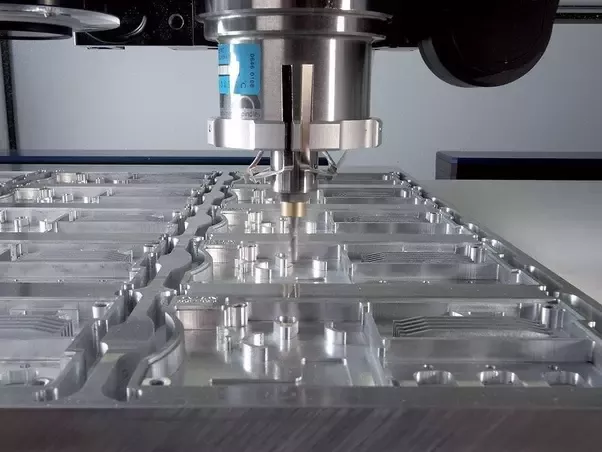Smartphones have become an integral part of our daily lives, but have you ever stopped to think about the technology behind these devices? One key factor behind the impressive designs and capabilities of modern smartphones is the use of Computer Numerical Control (CNC) machines.
These machines have revolutionized the manufacturing process, enabling the creation of complex components with unparalleled precision and efficiency.
Today, we’ll explore the history of CNC machines, their role in smartphone component production, and the ways they’re driving innovation in the industry.
What is a CNC Machine?
A CNC (Computer Numerical Control) machine is a computer-controlled manufacturing tool used for various applications, including cutting, milling, drilling, and shaping materials such as metal, plastic, wood, and composites. CNC machines are highly precise and efficient, making them essential in modern manufacturing and fabrication industries.
CNC machines have revolutionized various industries, including the smartphone manufacturing sector, by offering unparalleled precision, speed, and repeatability.
These machines facilitate the production of intricate designs and components, as well as ensure consistent quality across high-volume production runs. By automating the manufacturing process, CNC machines also minimize human errors, resulting in improved product reliability and performance.
Brief history of CNC machines
CNC technology traces its roots back to the 1940s when John T. Parsons and Frank L. Stulen developed a system for producing helicopter rotor blades using numerical control.
Over time, CNC technology evolved and was adopted in various industries, from aerospace and automotive to consumer electronics.
The entry of CNC machines into smartphone manufacturing marked a significant shift, with manufacturers leveraging the technology to create intricate components and streamline production processes.
The integral role of CNC machines in smartphone component production
CNC machines play a crucial role in the production of our various smartphone components. Some of these roles include:
Crafting Sleek and Sturdy Phone Exteriors
CNC machines play an essential role in creating the exterior frames and body of mobile phones. They provide the accuracy and consistency needed to manufacture aluminum and metal casings, resulting in sleek, sturdy, and lightweight devices that appeal to modern consumers.
CNC Milling and Smartphone Glass Production
CNC milling machines are utilized in the production of touch glass components for smartphones. They ensure the touchscreens are precisely cut and shaped, delivering a seamless and responsive user experience. Additionally, CNC machines contribute to the production of scratch-resistant and durable glass surfaces.
Custom Mobile Phone Cases
CNC machines enable the creation of a wide range of custom mobile phone cases, offering personalized options for consumers.
With the ability to produce intricate designs and patterns, CNC machines cater to a diverse array of preferences, resulting in unique and eye-catching phone cases that stand out.
Crafting Delicate Exterior Designs for Mobile Phones
CNC machines facilitate the production of delicate and intricate exterior designs for mobile phones. They allow manufacturers to create visually stunning devices with unique features and aesthetics that differentiate them from competitors.
The precision and versatility of CNC machines enable the creation of complex patterns, textures, and structures, contributing to the overall appeal of these devices.
Mobile Accessories and Peripheral Devices
CNC machines are also employed in the manufacturing of various mobile accessories and peripheral devices, such as wireless chargers, earbuds, and phone mounts.
By maintaining high levels of precision and quality control, CNC machines ensure the production of reliable and compatible accessories that enhance the smartphone experience.
Six ways CNC machines are driving innovation in smartphone production
Here are six remarkable ways these CNC machines are revolutionizing the mobile phone manufacturing industry today.
Rapid prototyping and design iteration
CNC machines enable manufacturers to quickly produce prototypes and iterate on designs, resulting in faster time to market and enhanced design capabilities.
This rapid prototyping allows companies to test and refine their products, ultimately delivering better-performing devices to consumers.
Increased precision and accuracy
CNC machines offer exceptional precision and accuracy, eliminating manual errors and improving product quality and reliability.
When making small, complicated parts like circuit boards and camera modules for smartphones, which are found in mobile phones, precision is very important.
Scalable production capabilities
CNC machines provide manufacturers with scalable production capabilities, facilitating high-volume production while maintaining cost-effectiveness.
Scalability lets companies meet customer needs and stay competitive in the smartphone market, which is growing all the time.
Complex and intricate designs
CNC technology enables manufacturers to create complex and intricate designs, paving the way for unique smartphone features and product differentiation.
These capabilities allow for the creation of slim, lightweight devices we all have today even with their advanced functionalities.
Improved material utilization
CNC machines help reduce waste and increase efficiency through improved material utilization. By optimizing the manufacturing process, mobile companies can produce more environmentally friendly products, minimizing the industry’s overall ecological impact.
Enhanced customization and personalization
With CNC machines, manufacturers can give customers more ways to customize and personalize their products, which meets their desire for unique items that are made just for them. This enables the production of niche-market devices, further expanding the industry’s reach.
Real-world examples of CNC machines in smartphone production
Major smartphone manufacturers, such as Apple and Samsung, rely on CNC machines in their production processes. Apple’s iPhone production, for example, utilizes CNC machines to create the iconic aluminum casings and internal components.
Similarly, Samsung’s Galaxy series smartphones incorporate CNC technology for the production of their metal frames and other components. Numerous other manufacturers also employ these CNC machines, showcasing the technology’s widespread adoption in the industry.
Wrapping Up
Indeed, CNC machines have driven innovation and shaped the modern smartphone landscape. As technology continues to advance, CNC machines will undoubtedly remain an integral part of the smartphone manufacturing process, further pushing the boundaries of what is possible and shaping the future of mobile devices.

